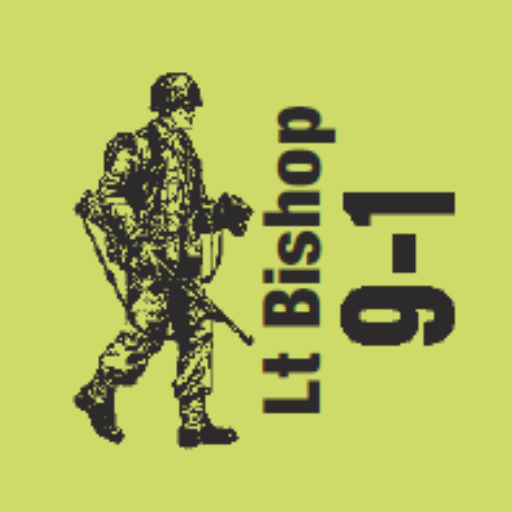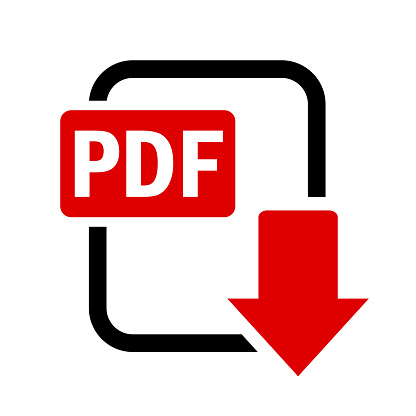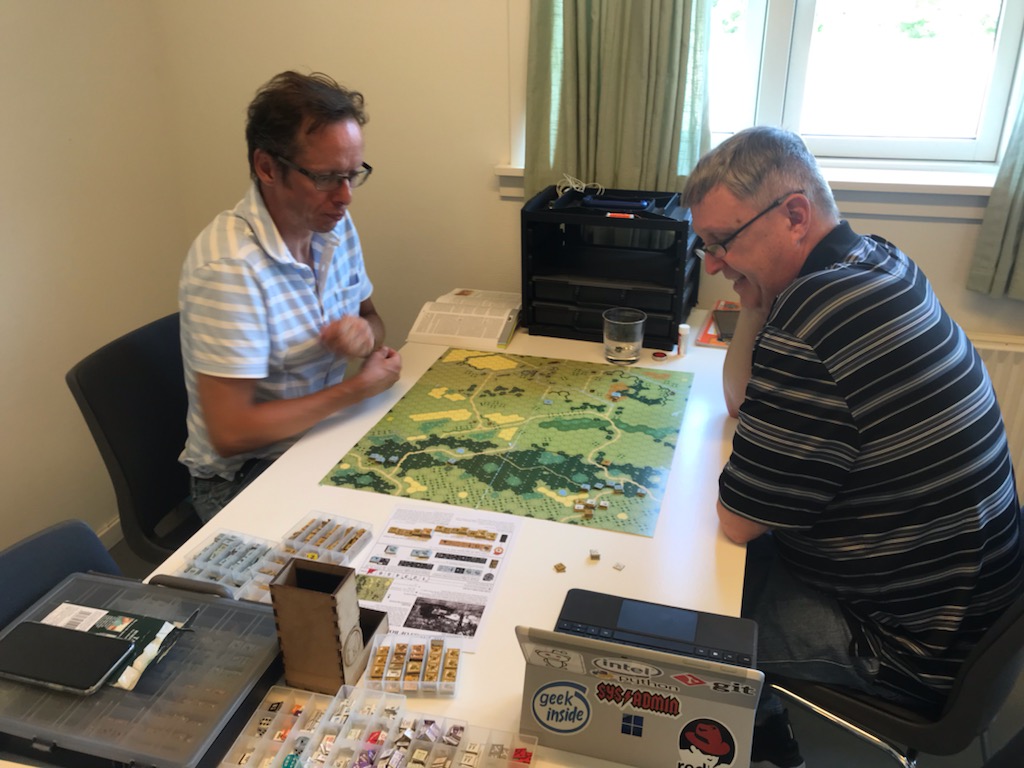
I see this question a lot. Someone decides to attend their first ASL tournament and they want to know what to take. I have answered this pretty consistently over the years, although I have modified it some based on input from other ASL players. What follows are my recommendations.
1) ASL Rule Book:
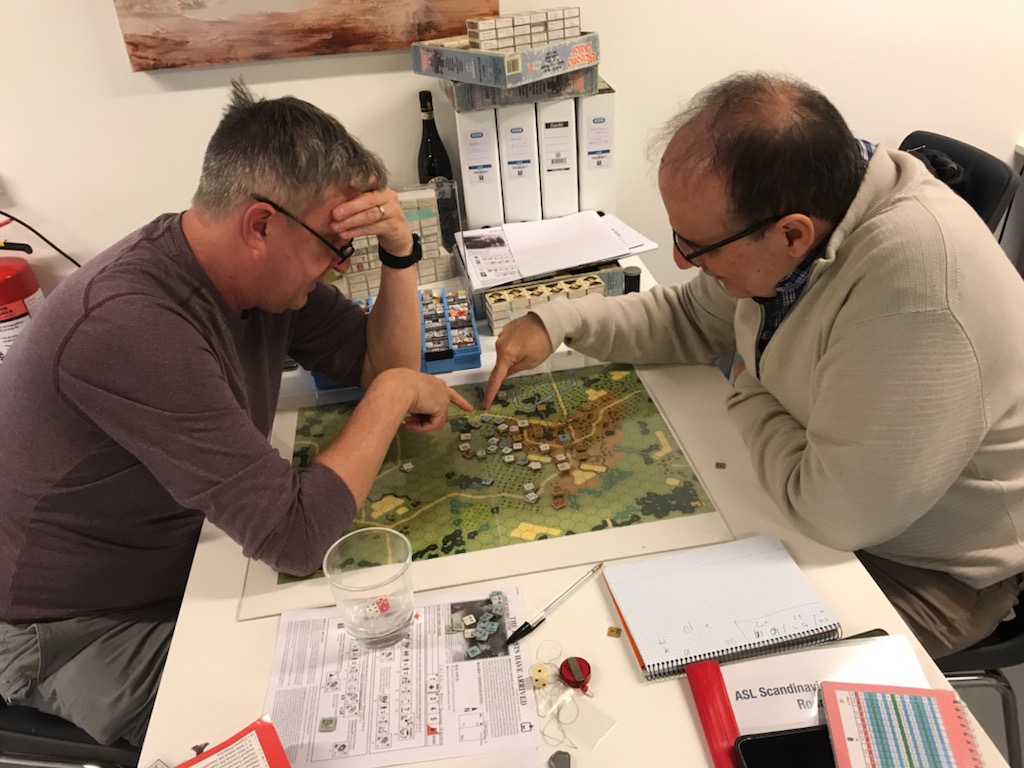
You really can’t play without it. If your rule book is like mine and filled with notes, reminders, all the errata, and some Q&A, you better bring it with you because no one else’s is like yours. Sure, you can generally find a rule book but it is a pain to interrupt someone in the middle of a game to ask them if you can borrow their rule book.
2) Charts/Chapter Dividers:
You can bring either the official charts from MMP, the LFT Rat Charts, or some other play aid you made for yourself. It doesn’t matter what form they take as long as you have them. You really can’t play without them.
3) Dice / Something to Roll In / LOS Thread:
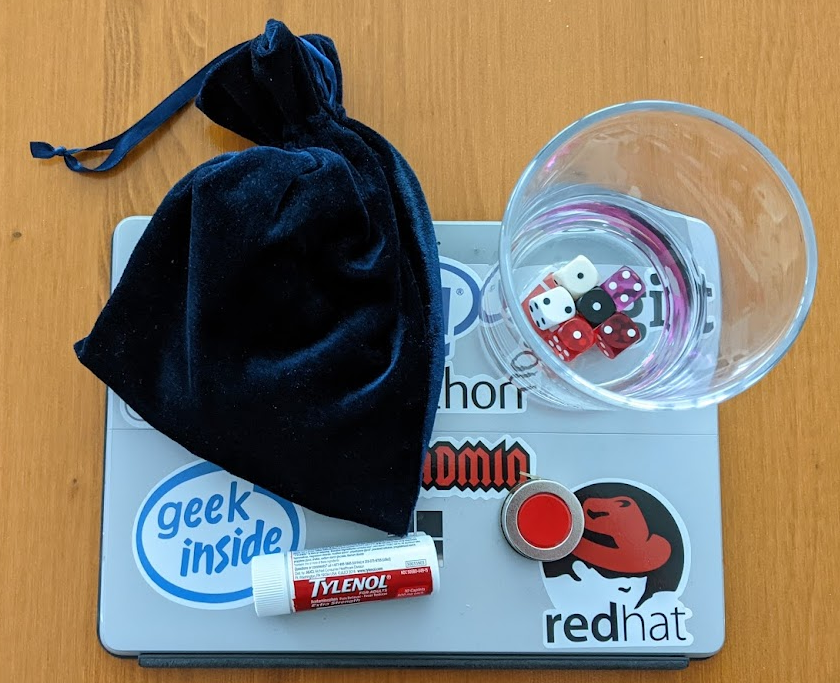
You can’t play ASL without dice. Free rolling across the table runs the risk of ruining not only your game but also someone else’s. Make sure your tray or glass allows your opponent to see what’s rolled from his side of the table. Bring at least 4 dice of different colors if you can (one MUST be white) to allow for Random Selection DR’s and a 3rd die if needed (e.g., Dust die for desert scenarios). A lot of people are strongly against sharing dice so keep this in mind. The image above captures my dice cup, LOS thread, BattleSchool OBA tokens, and dice. Not pictured are my LFT Rat Pocket Charts.
4) Scenario Playlist:
Stop me if this has happened to you: you meet with an ASL player and you ask him “Anything you want to play?” and he responds back “Not really. Do you have anything on your list?”. This happens countless times at an ASL gathering. Bring some scenarios you want to play and it will short circuit the process of digging through thousands of scenarios in someone’s binders looking for something to play.
5) System Counters:
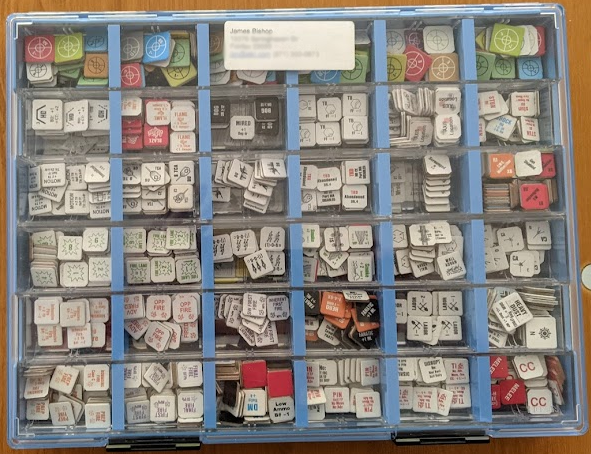
Every game needs them. If you can bring your own you don’t have to worry about finding any. I personally have a second set of system counters in a compact Hozan storage system just for travel (image at left). If I am not using them, I share them with others who may need them. To the left are my travel system counters.
6) Overlays:
They are small. They are hard to track down. It makes me nervous when I loan mine out. They are hard to label, especially one-hex overlays. They are easily left on boards or misfiled by other players. It can be challenging to find the overlays necessary to play if the scenario is high on everyone’s playlist. I recommend you bring them if you have room, especially third party overlays required by your playlist (item 4). Make copies of your overlays and bring those if you can.
7) Third Party Counters/Maps:
If you have scenarios requiring these on your playlist (Item 4 above) then I recommend you bring the things you may need to play them. Finding official ASL parts is generally easy but there is no guarantee third party boards and counters will be there. In some cases official counters may suffice but there is no substitute for a third party board.
8) Common Orders of Battle (OB):
Think about the games you have played in the past. How many have featured the German OB? If you are primarily an Ost Front player, perhaps almost every game you’ve ever played has included the German OB. Tournaments featuring a themed-mini can make finding a particular OB challenging. Bringing this OB will make it easier for you to find the things you need to play.
9) Bring it ALL:
If you have everything else on this list packed it’s time to consider bringing everything you own. If you’re driving in I strongly urge you to bring it all. People on planes are unlikely to be able to pack everything. Some industrious players will still manage it–especially people using match-box storage systems–but it isn’t practical to expect fliers to bring everything. The tournament doesn’t work if everyone only brings pieces.
Trust me when I say this, ASL’ers are VERY respectful of other people’s stuff. I have attended somewhere north of 100 events and I have never lost anything. My ASL kit is clearly labeled on the back, including my name, cell phone number, and email address. When things have been misplaced they always find their way back. You can buy labels through your local office supply store or Amazon. Label makers generally offer software designed to work with their labels and you can print out a thousand in about 10 minutes. I did this once and I have a couple hundred spare labels packed into my map box. If I buy something at the tournament I have labels right at hand to apply as necessary.
Special Considerations:
These are items I think can be useful and a lot of people will bring these to a tournament as well.
- Small table lamp: lighting at some venues leaves something to be desired. An extension cord to go with it is also advisable.
- Tylenol: or something like it. You would be surprised how much your head can hurt after three days of intense game play.
- Snacks: These aren’t always easily available. If you do snack, be respectful of other people’s kit. Don’t get crumbs in their counter trays or stain their counters!
- A notebook: depending on how much you play around, you’re going to learn something new at a tournament. It’s inevitable. However you choose to take notes, be sure to record it. I also like to keep track of who and what I played, notes on interesting things that happened, and the outcome. It’s fun to look back on it all later.
Conclusion
I tried laying this list out in a logical order. The first three items should be considered mandatory in my opinion. No one is going to give you grief if you don’t show up with these but having them will make your attendance much smoother. There’s no doubt you could scrounge up some dice, thread, and charts to use but it is a lot easier if you just bring your own. With the new electronic rule book, you can fit this on an e-reader, tablet, or a small PC. Dice can fit in a small container. You should be able to easily tuck them both into your carry-on luggage, along with your charts. Your system counters should be easily stored in your carry-on or checked baggage depending on how compact they are.
Lastly, bring a good attitude. I would argue this is the most important thing. You’re very likely to lose more scenarios than you win when attending a tournament. People attending tournaments are generally very skilled players, especially if they are coming from another country. Take the opportunity to play and learn from them. You can certainly win, I don’t want to rule that out, but if you go expecting to win you are very likely to be disappointed. Tell the TD you’re new to tournaments and–if true–new to ASL and I guarantee he will match you with someone who will be glad to play and show you the ropes. Remember, he wants you to come back.
If you have any questions or suggested additions, please let me know and I will consider expanding the list. Until next time. — jim
version 1.1
